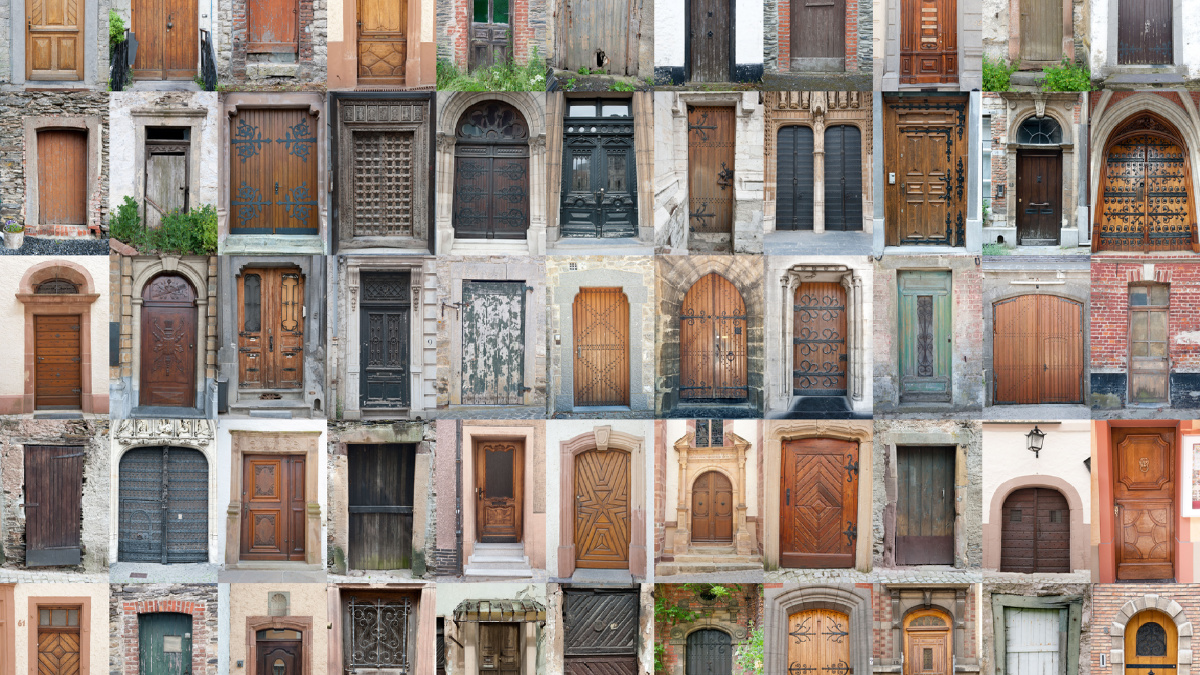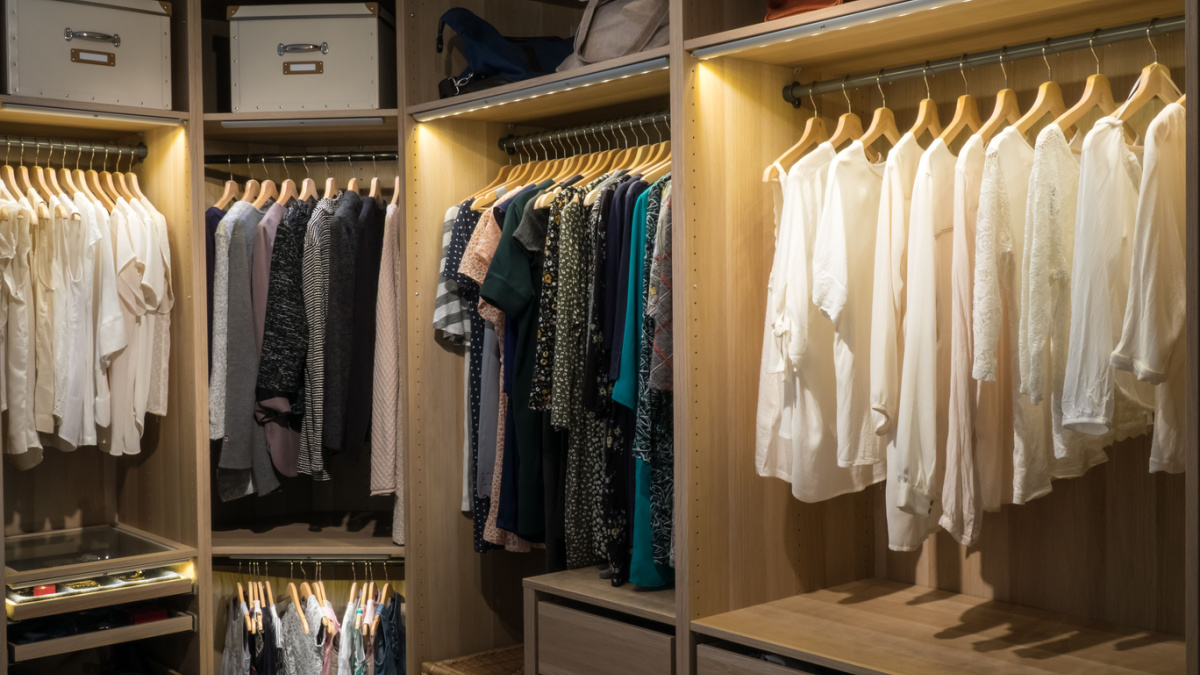Traditional doors have been a popular choice for homeowners for centuries. These doors are made of natural materials such as wood, and they offer a classic, timeless look. However, traditional doors require regular maintenance and can be susceptible to warping, cracking, and weather damage.
Composite doors, on the other hand, are a newer option that has gained popularity in recent years. These doors are made of a combination of materials, such as PVC, wood, and insulating foam. They offer the appearance of traditional doors but with added durability and weather resistance. Composite doors also require less maintenance and are more energy-efficient than traditional doors. As a result, they are becoming a popular choice among homeowners looking for a low-maintenance, long-lasting door option.
Differences Between Traditional And Composite Doors
Traditional doors are made from natural materials such as wood, which give them a classic and timeless look. They are often preferred by homeowners who want to maintain the traditional style of their homes. However, traditional doors are prone to warping, cracking, and rotting due to exposure to weather elements. They also require regular maintenance such as painting, staining, and sealing.
Composite doors, on the other hand, are made from a combination of materials such as PVC, wood, and insulating foam. They are designed to withstand harsh weather conditions and are resistant to warping, cracking, and rotting. They require minimal maintenance and are available in a variety of styles and colors to suit different home designs. Composite doors are also energy-efficient, providing better insulation and reducing energy bills.
Advantages Of Traditional Doors
One of the advantages of traditional doors is their durability. Made from solid wood, traditional doors can withstand wear and tear and last for many years. They are also easily repairable in case of any damage. Traditional doors provide a classic and timeless look, adding character and charm to any home. They come in a variety of styles and designs, giving homeowners the option to choose a door that fits their personal taste and the overall aesthetic of their home.
Another advantage of traditional doors is their energy efficiency. Solid wood doors provide better insulation than composite doors, keeping homes warmer in the winter and cooler in the summer. This can result in lower energy bills and a more comfortable living environment. Additionally, traditional doors are more environmentally friendly than composite doors as they are made from natural materials and can be recycled at the end of their lifespan. Overall, traditional doors offer a range of benefits that make them a great choice for homeowners looking for a reliable, stylish, and energy-efficient door option.
Advantages Of Composite Doors
One of the most significant advantages of composite doors is their durability. Made from a combination of materials such as uPVC, wood, and glass reinforced plastic, composite doors are strong, sturdy, and resistant to weathering, warping, and cracking. They are also highly resistant to dents, scratches, and other forms of impact damage, making them an excellent choice for high-traffic areas.
Another advantage of composite doors is their energy efficiency. Thanks to their multi-layered construction, composite doors provide excellent insulation, keeping your home warm in the winter and cool in the summer. This helps to reduce your energy bills and carbon footprint, making composite doors an environmentally-friendly choice. Additionally, composite doors are easy to maintain, requiring only occasional cleaning to keep them looking their best. Overall, the advantages of composite doors make them an excellent investment for any homeowner looking to improve the security, energy efficiency, and aesthetic appeal of their property.
Disadvantages Of Traditional Doors
One of the biggest drawbacks is their lack of insulation, which can lead to energy loss and higher utility bills. Traditional doors are also prone to warping, which can cause gaps and drafts, further exacerbating the energy loss issue.
Another disadvantage of traditional doors is their susceptibility to damage. Wood doors can rot or become damaged by moisture, while metal doors can rust or dent. This can be especially problematic in areas with harsh weather conditions or high levels of humidity. Additionally, traditional doors often require regular maintenance, including sanding, staining, and painting, which can be time-consuming and costly. These disadvantages have led many homeowners to consider alternative options, such as composite doors, which offer improved insulation, durability, and low maintenance requirements.
Disadvantages Of Composite Doors
Although composite doors are widely used for most homeowners, they also have their own disadvantage. One major disadvantage is their cost, as composite doors are typically more expensive than traditional doors made of wood or uPVC. Additionally, composite doors may not be as aesthetically pleasing as traditional doors, as they often have a uniform appearance and limited design options. Some homeowners may also find composite doors to be heavier than traditional doors, which can make installation more difficult and require stronger hinges and frames. Despite these drawbacks, composite doors remain a popular choice for those seeking a secure and low maintenance option for their home.
Factors To Consider When Choosing Between Traditional And Composite Doors
There are several factors that you must consider when choosing between traditional and composite doors. One of the most important factors is durability. Traditional doors are typically made of wood, which can warp and rot over time. Composite doors, on the other hand, are made of a combination of materials such as PVC, wood, and foam, which make them more resistant to weather damage and wear and tear.
Another factor to consider is energy efficiency. Composite doors are often more energy-efficient than traditional doors, as they have better insulation properties. This can help to reduce energy bills and keep your home more comfortable. Other factors to consider include security, maintenance requirements, and aesthetic appeal. Ultimately, the choice between traditional and composite doors will depend on your individual needs and preferences.
Which Door Is Right For You?
Choosing the right door for your home ultimately depends on your personal preferences and needs. If you’re looking for a classic and elegant aesthetic, a traditional wooden door may be the way to go.
However, if you prioritize durability and low maintenance, a composite door may be a better fit for you. It’s important to consider factors such as energy efficiency, security features, and budget when making your decision. Ultimately, whichever door you choose, make sure it provides the functionality and style you desire to welcome you and your guests into your home.









